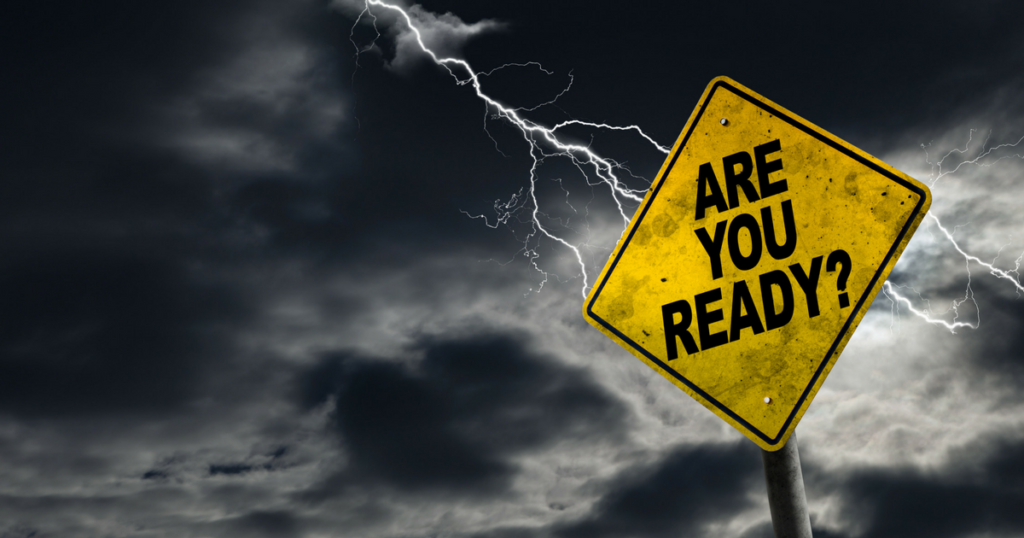 September is National Preparedness Month. As the recent hurricanes have vividly reminded us, weather-related emergencies can put you and your family in danger — unless you plan ahead.
September is National Preparedness Month. As the recent hurricanes have vividly reminded us, weather-related emergencies can put you and your family in danger — unless you plan ahead.
For MDA families, many of whom have or care for a loved one with limited mobility, storms that require evacuating, seeking shelter and functioning without electricity for an extended period of time present special challenges. In anticipation of extreme weather, we’ve pulled the top four tips from our Emergency Preparedness Checklist for People with Neuromuscular Diseases. These tips will help you get started making plans, but remember to discuss options with your family, friends or a personal care attendant.
1. Contact MDA
MDA actively tries to reach all individuals it serves who live in affected areas to assess their well-being and offer assistance. If you have evacuated to a different area and need MDA services (including help with durable medical equipment or visiting an MDA Care Center), contact the MDA Resource Center at (800) 572-1717 or send an email to resourcecenter@mdausa.org.
2. Prepare a Disaster Supplies Kit
Assemble supplies you might need in an evacuation. Store them in easy-to-carry containers such as a backpack or duffel bag. Items to include:
- A battery-powered radio, flashlight and plenty of extra batteries for them
- A first aid kit, prescription medications and an extra pair of glasses
- A supply of water (one gallon per person per day); store water in sealed, unbreakable containers; identify the storage date, and replace every six months
- A supply of nonperishable food and a nonelectric can opener, plus any special foods you require
- Extra wheelchair batteries, oxygen, medication, catheters, food for guide or service dogs, or other special equipment you might need
- A change of clothing, rain gear, sturdy shoes, blankets or sleeping bags
- A list of family physicians and the relative or friend who should be notified if you are injured
- A list of the styles and serial numbers of medical devices such as power wheelchairs
- Store backup equipment, such as a manual wheelchair, at a neighbor’s home, school or your workplace.
3. Ask Questions
Call your local Federal Emergency Management Agency office or American Red Cross chapter and inquire about special assistance that may be available to you in an emergency. Many communities ask people with disabilities to register, usually with the local fire department or emergency management office, so needed help can be provided quickly in an emergency.
Also, ask your supervisor about emergency plans at your workplace. Ask your children’s teachers and caregivers about emergency plans for schools and day care centers. If you currently use a personal care attendant obtained from an agency, check to see if the agency has special provisions for emergencies (e.g., providing services at another location should an evacuation be ordered).
4. Visit MDA’s Emergency Preparedness Website
Additional information and a recording of a webinar on emergency preparedness can be found here.
